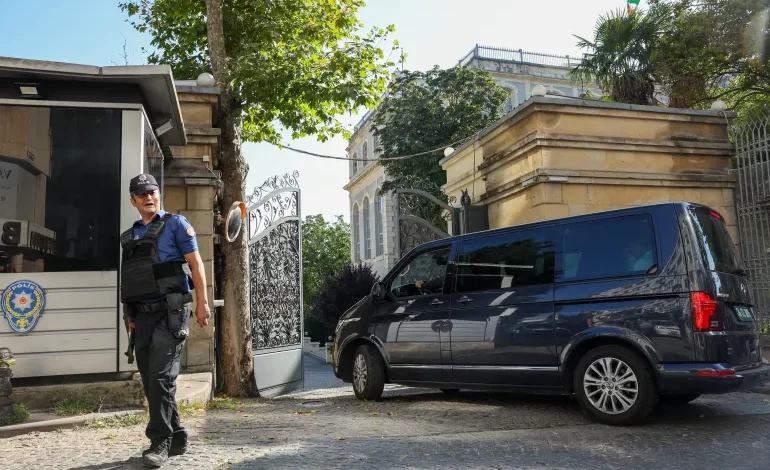
Iran met with European powers in Istanbul on Friday to restart nuclear talks, raising hopes of diplomatic progress even as tensions remain high. The renewed discussions took place under the shadow of possible nuclear sanctions, just weeks after a deadly conflict with Israel disrupted earlier negotiations.
First Talks Since June Conflict
The four-hour meeting, held at the Iranian consulate in Istanbul, marked the first high-level diplomatic engagement between Iran and the so-called E3 — Germany, France, and the United Kingdom — since Israel’s mid-June strikes on Iranian territory. That attack, supported by U.S. military intervention, escalated into a 12-day confrontation and resulted in the deaths of senior Iranian commanders, scientists, and hundreds of civilians.
Israel’s offensive also targeted several nuclear facilities, significantly affecting the trajectory of U.S.-Iran nuclear discussions that had resumed in April but stalled due to the hostilities.
Snapback Sanctions Loom Over Talks
The talks on Friday were fueled by European concerns that Iran is moving away from its commitments under the 2015 Joint Comprehensive Plan of Action (JCPOA). The E3 has recently warned that they may activate the snapback sanctions mechanism embedded in the 2015 UN resolution, which would reimpose UN sanctions on Iran for non-compliance.
Deputy Foreign Minister Kazem Gharibabadi and senior diplomat Majid Takht-Ravanchi led the Iranian delegation. After the meeting, Gharibabadi described the discussions as “serious, frank, and detailed,” confirming that both sides exchanged proposals and agreed to continue consultations.
Iran Reaffirms Its Position
Tehran emphasized that it would not accept pressure or threats linked to Resolution 2231, the UN Security Council measure that endorsed the JCPOA and included the snapback mechanism. Foreign Ministry spokesperson Esmaeil Baghaei called the idea of renewing those sanctions “meaningless and baseless” in an interview with Iran’s state-run IRNA news agency.
Iranian officials also reiterated their demand for complete sanctions relief before making any new commitments. They expressed concern that Western powers continue to pressure Iran while failing to uphold their own JCPOA obligations.
Read: Tragedy in Russia: Plane Crash Claims 48 Lives in Far East
European Concerns and Objectives
European diplomats have remained relatively quiet about the specific content of the Istanbul talks, but sources indicate they focused heavily on Iran’s nuclear enrichment levels, inspection access, and timelines for compliance.
The E3 reportedly stressed the need to prevent further escalation in the region and voiced concerns about Iran’s increasing stockpile of enriched uranium, which Western analysts believe is approaching weapons-grade levels.
France, the UK, and Germany also urged Iran to return to full cooperation with the International Atomic Energy Agency (IAEA), including allowing inspections of its nuclear sites and clarifying unresolved questions about past nuclear activity.
Wider Context of Regional Tension
Friday’s meeting took place amid a tense regional backdrop. The recent military conflict between Israel and Iran has left scars that continue to influence diplomacy. Israel’s attack, backed by American strikes on nuclear infrastructure, disrupted months of indirect progress between Washington and Tehran.
Iranian leaders see the conflict as part of a larger Western attempt to weaken their strategic capabilities. In response, Tehran has pushed forward with nuclear activities while resisting calls for transparency from international watchdogs.
Future of Talks Uncertain
Although both sides agreed to continue the dialogue, the path forward remains uncertain. With growing mistrust on both sides and the looming threat of renewed sanctions, diplomatic progress will likely require bold concessions and strong mediation.
Iran insists on its right to peaceful nuclear technology and demands an end to what it views as “unjust” economic restrictions. Meanwhile, European powers seek to avoid a total collapse of the JCPOA framework, fearing further instability in the Middle East.
The Istanbul meeting may mark a tentative return to diplomacy, but any real breakthrough will require more than dialogue — it will demand political will, mutual respect, and a shared vision for regional peace.
Follow us on Instagram, YouTube, Facebook,, X and TikTok for latest updates
